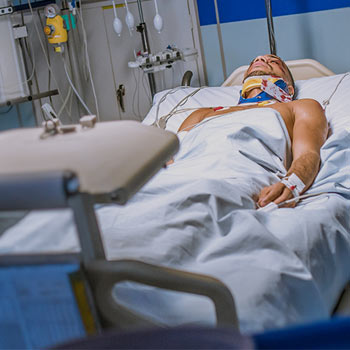Accidental & Trauma Care
- Home
- Services
- Critical Care Medicine
- Accidental & Trauma Care
What is Accidental & Trauma Care?
Accidental and trauma care is a critical aspect of emergency medical services that focuses on providing immediate medical attention to individuals who have sustained injuries from accidents or traumatic events. This specialized care is essential in life-threatening situations such as road traffic accidents, falls, industrial mishaps, and other incidents that result in severe physical injuries
What is the Importance of Accidental & Trauma Care?
Accidents are unpredictable and can lead to devastating outcomes if not treated promptly. Trauma is a leading cause of death and disability worldwide, particularly among younger populations. Quick and efficient trauma care can significantly improve survival rates and reduce the severity of injuries. Immediate intervention is crucial to stabilize patients, prevent complications, and improve recovery outcomes

Levels of Trauma Care
Trauma care is divided into different levels based on the severity of the injury and the type of medical facilities available
Primary Trauma Care (Basic Life Support)
This involves the initial assessment and stabilization of the patient at the accident site. First responders, including paramedics, perform critical tasks like airway management, controlling bleeding, and immobilizing fractures
Secondary Trauma Care (Advanced Life Support)
After the patient is stabilized, they are transferred to a trauma center equipped to provide more advanced care. This includes surgical interventions, diagnostic imaging, and specialized treatments for injuries to organs, bones, and other body systems
Tertiary Trauma Care (Specialized Care)
For complex or severe trauma cases, tertiary care provides specialized surgeries and rehabilitation services. These centers often have multidisciplinary teams comprising surgeons, critical care specialists, neurologists, orthopedic experts, and rehabilitation therapists
What are the Common Accidental & Trauma Injuries?
Trauma can affect various parts of the body and lead to different types of injuries. Some of the most common injuries treated in trauma care include
Head Injuries
These range from concussions to more severe conditions like skull fractures or traumatic brain injuries (TBI), which require immediate medical intervention to prevent long-term damage
Spinal Injuries
Spinal cord injuries can lead to paralysis and other severe disabilities if not treated quickly
Fractures and Dislocations
Broken bones and dislocated joints are common in accidents. Early treatment ensures proper healing and reduces the risk of complications
Internal Bleeding
Accidents can cause damage to internal organs, leading to life-threatening internal bleeding. Quick detection and surgical intervention are crucial
Burns and Lacerations
Severe burns or deep cuts need immediate attention to prevent infection and minimize scarring
What is the Role of a Trauma Center?
Trauma centers play a pivotal role in delivering life-saving care to accident victims. These facilities are specially equipped with advanced diagnostic tools, operating rooms, and trauma teams available 24/7.
- Emergency Department (ED): The first point of contact in trauma care. It is designed to handle patients with various injury severities and initiate lifesaving treatments
- Surgical Suites: For trauma patients requiring surgery, trauma centers have state-of-the-art operating rooms equipped for procedures like neurosurgery, orthopedic surgery, and general surgery
- Intensive Care Unit (ICU): Trauma patients may need to be monitored in an ICU where critical care specialists ensure stabilization of vital functions like breathing, heart rate, and blood pressure
Why Accidental & Trauma Care Matters
Immediate care after an accident is critical to preventing death and long-term disability. Effective trauma systems ensure rapid response, coordinated treatment, and rehabilitation. Some of the key benefits include
- Reduced Mortality: Timely intervention in a trauma center can lower death rates significantly
- Better Recovery Outcomes: With proper treatment, many trauma victims recover faster and with fewer complications
- Rehabilitation Support: After the initial treatment, trauma care includes rehabilitation services to help patients regain strength, mobility, and independence
Accidental and trauma care is a vital component of emergency medical services. With proper and timely interventions, trauma victims can be saved from life-threatening situations and have a chance for a full recovery. Access to a well-equipped trauma center and trained medical professionals is essential for improving outcomes in cases of severe accidents
